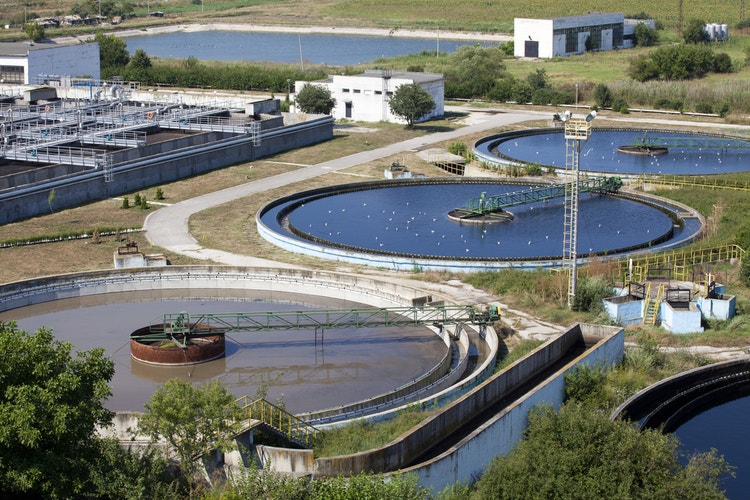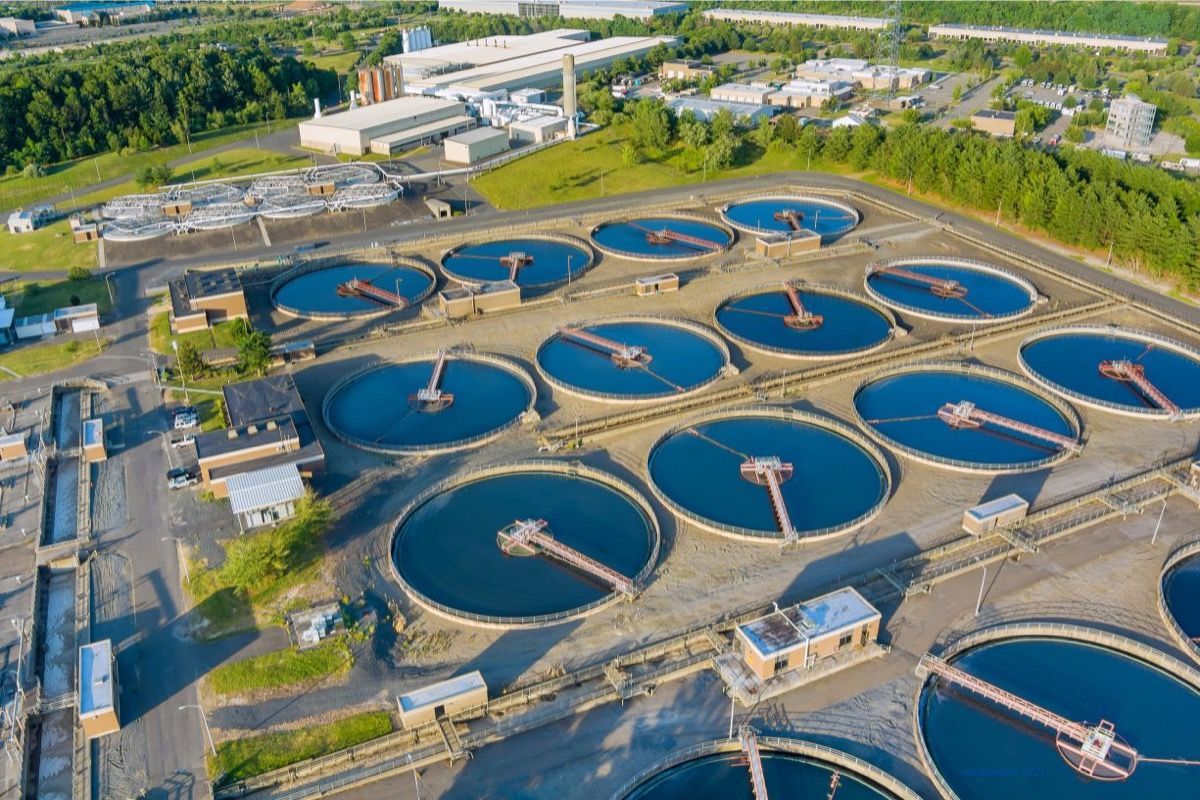Water Technology Startups for Angel Investors: Tapping New Markets
Wiki Article
Exploring Water Technology Startups: Exactly How They Revolutionize Lasting Solutions
Water Technology start-ups are arising as critical gamers in the quest for lasting remedies to global water problems. These business leverage cutting-edge innovations to boost water effectiveness and administration. Their contributions resolve pressing difficulties such as shortage and contamination. Despite their potential, they face numerous challenges that could impact their success. Understanding these characteristics clarifies the future of water sustainability and the function these startups might play fit it.The Value of Water Technology in Today's Globe
As international water scarcity increases, the significance of water Technology becomes progressively apparent. Water Technology plays a critical role in dealing with the obstacles posed by increasing and decreasing fresh water resources need. It incorporates a broad variety of advancements, consisting of innovative filtration systems, wastewater treatment innovations, and wise irrigation services. These advancements not only improve the performance of water use but additionally advertise sustainable practices throughout numerous industries, including farming, sector, and city growth.Furthermore, the relevance of water Technology expands beyond resource administration. It cultivates durability versus environment modification effects, such as floods and droughts, by supplying adaptive remedies for water preservation and management. In addition, it supports public health by ensuring access to secure and tidy alcohol consumption water. As the globe faces expanding water-related obstacles, the assimilation of sophisticated water innovations is necessary for cultivating lasting development and protecting water accessibility for future generations.
Ingenious Solutions From Water Tech Startups
While conventional techniques to water administration have actually served their objective, a new wave of water tech start-ups is transforming the sector with innovative services (Water Technology Startups). These companies leverage innovative innovations to attend to pressing water concerns, such as shortage, contamination, and inefficient distribution. Numerous start-ups make use of expert system and artificial intelligence to maximize water usage and forecast need, resulting in more lasting methodsIn addition, several firms concentrate on establishing advanced filtering systems that remove pollutants and make water risk-free for consumption. Others discover decentralized water treatment technologies, permitting neighborhoods to manage their water sources better. Some start-ups are pioneering clever irrigation options that reduce water waste in farming, advertising environmental conservation.
Situation Studies: Successful Water Technology Startups
Various water Technology start-ups have emerged as leaders in addressing international water obstacles with cutting-edge techniques. One notable example is Xylem, which concentrates on water analytics and smart facilities to maximize water usage and lower waste. Their remedies have actually been implemented in various municipalities, showing significant renovations in water management performance.One more successful startup, No Mass Water, has created solar-powered hydropanels that draw out water vapor from the air, offering lasting drinking water in deserts. Water Technology Startups. This Technology has been released in numerous countries, making sure communities have access to tidy water
Last But Not Least, AquaVenture Holdings runs a varied portfolio of water-as-a-service options, addressing water shortage with desalination and wastewater treatment. Their projects have verified necessary in regions encountering extreme water scarcities, showcasing the possibility of ingenious water technologies to create lasting, positive influences. These study highlight the transformative potential of start-ups in the water Technology sector.
The Function of Smart Technology in Water Management
Smart Technology plays a vital duty in modern-day water monitoring by leveraging IoT applications to enhance resource use. Data analytics improves performance by providing workable insights, while remote monitoring services allow real-time oversight of water supply. Together, these advancements transform how water is taken care of, promoting sustainability and operational effectiveness.IoT Applications in Water
As water shortage and administration challenges magnify globally, the integration of Net of Points (IoT) applications has become a pivotal remedy in optimizing water resources. IoT Technology helps with real-time tracking and evaluation of water supply, allowing much more effective usage and administration. Sensors released in different water infrastructures can track top quality, circulation prices, and leak, supplying beneficial information to stakeholders. This data equips utilities and customers to make enlightened choices, decreasing waste and boosting conservation efforts. In addition, smart watering systems make use of IoT to enhance water distribution for farming, ensuring that crops receive the right amount of water at the appropriate time. Overall, IoT applications are changing conventional water management techniques, cultivating sustainability and resilience in water resource systems.Data Analytics for Performance
Harnessing information analytics is important for boosting performance in water monitoring. Water Technology start-ups are significantly utilizing sophisticated analytics to enhance source allowance and decrease waste. By assessing information from numerous resources, these start-ups can recognize patterns and fads that educate better decision-making. Anticipating analytics can anticipate water need, allowing utilities to readjust supply appropriately, consequently reducing surpluses and shortages. Furthermore, real-time data handling allows the prompt detection of leaks and inadequacies within distribution systems, considerably minimizing functional expenses. Data-driven insights empower stakeholders to implement targeted preservation methods, cultivating sustainable methods. Basically, integrating information analytics into water monitoring not only streamlines operations yet likewise advertises long-lasting sustainability in water resource usage.Remote Monitoring Solutions
While standard water management systems frequently deal with inefficiencies, remote surveillance services are changing how water resources are managed. These cutting-edge modern technologies enable real-time information collection and evaluation, enabling stakeholders to monitor water top quality, circulation prices, and use patterns from afar. Utilizing sensors and IoT gadgets, remote monitoring offers immediate insights that promote aggressive decision-making. This shift not only improves functional performance however additionally promotes sustainability by lowering water waste and maximizing source allotment. Additionally, remote surveillance systems can identify potential problems prior to they escalate, consequently minimizing the risk of contamination or facilities failure. As water Technology start-ups remain to create these options, the market is poised for significant innovations in lasting water administration methods.Obstacles Facing Water Technology Startups
Water Technology start-ups run into significant difficulties that can impede their growth and success. Key issues consist of protecting sufficient funding, navigating through complex regulative environments, and competing in a congested market. These barriers require critical preparation and development to get over.Financing and Investment Obstacles
Advancement in water Technology holds immense potential for resolving worldwide obstacles, start-ups in this field usually deal with considerable financing and financial investment difficulties. Many capitalists continue to be careful, viewing the water field as high-risk due to its complex regulative landscape and lengthy advancement timelines. Additionally, start-ups often battle to show prompt profitability, which can discourage prospective backers. Standard equity capital may ignore water modern technology, favoring sectors with quicker returns, such as technology or consumer goods. Securing gives and federal government funding can be time-consuming and affordable, further making complex financial stability. Therefore, several cutting-edge water Technology start-ups find themselves in a perilous position, requiring creative financing approaches to navigate these monetary obstacles and attain their goalsRegulative Conformity Issues
Steering regulatory conformity is a considerable difficulty for start-ups in the water Technology industry, as they need to face a myriad of regional, national, and worldwide guidelines. These guidelines commonly include water top quality requirements, environmental management regulations, and read more safety and security protocols, which can vary widely throughout territories. Startups may locate it tough to browse this complex landscape, especially when scaling operations or getting in new markets. The expenses connected with conformity can be significant, diverting sources far from technology and item development. Furthermore, delays in acquiring needed permits or accreditations can prevent development and market entrance. Consequently, a robust understanding of governing structures is crucial for these startups to assure sustainable procedures and avoid potential lawful consequences.Market Competitors Characteristics
As water Technology start-ups emerge in an affordable landscape, they deal with various obstacles that can hinder their development and innovation. Developed companies commonly control the marketplace, leveraging sources and experience to maintain their placements. Startups struggle with minimal funding, which limits r & d capabilities, making it difficult to compete on Technology and rates. Additionally, the quickly advancing nature of water modern technologies needs consistent adaptation, more stressing start-up resources. Regulative hurdles can make complex market entry, as compliance with environmental criteria is critical yet pricey. Lastly, bring in experienced ability in a niche field provides another obstacle, as bigger firms may use even more attractive work bundles. These elements create an intricate atmosphere for water Technology start-ups aiming to prosper.The Future of Water Technology and Sustainability

The future of water Technology will likely concentrate on incorporating fabricated knowledge and data analytics to enhance water distribution and use patterns. By utilizing real-time data, business can predict shortages and take care of resources extra efficiently. Additionally, sustainable practices will come to be a keystone of the industry, encouraging round economies where water is reused and treated. Inevitably, the continued advancement of water Technology will certainly be essential in creating resilient frameworks with the ability of fulfilling the difficulties postured by environment change and populace growth while promoting ecological stewardship.
Frequently Asked Concerns
What Are the Trick Metrics for Assessing Water Technology Startups?
Key metrics for examining water Technology startups consist of market capacity, scalability, client purchase expenses, revenue development, technology advancement, governing conformity, environmental impact, affordable benefit, and group know-how, all important for identifying long-lasting viability and success.How Can People Assistance Water Technology Innovations?
Individuals can sustain water Technology innovations by buying start-ups, supporting for plan adjustments, taking part in area efforts, sharing understanding regarding lasting methods, and advertising understanding of water issues through regional events and social media.What Prevail Funding Resources for Water Tech Startups?
Usual funding sources for water technology startups include equity capital, government gives, crowdfunding systems, angel financiers, and business collaborations. These financial methods aid facilitate advancement and growth in lasting water monitoring innovations.
Which Industries Advantage A Lot Of From Water Technology Advancements?
Industries such as agriculture, energy, production, and local services benefit significantly from water Technology advancements. These innovations enhance water efficiency, minimize costs, and promote lasting techniques, inevitably adding to environmental preservation and source monitoring.Exist Any Kind Of Governing Obstacles Certain to Water Innovation?
Yes, water Technology faces regulatory obstacles, consisting of compliance with environmental standards, allowing procedures, and varying local regulations. These complexities can hinder advancement and slow the application of new innovations in the water administration field.Water Technology startups are arising as crucial players in the quest for sustainable options to worldwide water issues. As worldwide water scarcity escalates, the relevance of water Technology comes to be increasingly noticeable. Others check out decentralized water therapy technologies, allowing neighborhoods to manage their water sources much more properly. An additional effective startup, No Mass Water, has established solar-powered hydropanels that remove water vapor from the air, offering lasting drinking water in arid areas. Their projects have shown important in areas facing severe water lacks, showcasing the potential of cutting-edge water technologies to produce lasting, positive effects.
Report this wiki page